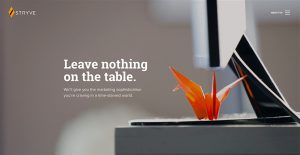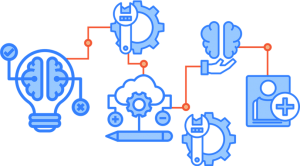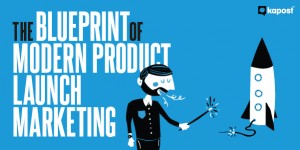 We often decide what we’re going to do with our lives amidst the wild and crazy college years. Somewhere between sophomore and junior year, when I was growing into my own body and mind, I found marketing to be my passion, however, that was far from my starting point. At three years old, I wanted to be a Broadway actress. At ten, I was going to be a dancer. In my teenage years, I wanted to be a psychologist.
We often decide what we’re going to do with our lives amidst the wild and crazy college years. Somewhere between sophomore and junior year, when I was growing into my own body and mind, I found marketing to be my passion, however, that was far from my starting point. At three years old, I wanted to be a Broadway actress. At ten, I was going to be a dancer. In my teenage years, I wanted to be a psychologist.
However, as early as I learned my ABCs, I loved writing. I filled blank books with stories about inventions, animals, teenage life, and more. I had many, many diaries.
When I attended the University of Hartford, I started out as a psychology major, but after my first semester, I realized that writing was still my passion, so I minored in English and majored in Communications.
Communications and marketing was where I found my home. I enjoyed the classes in advertising, interpersonal communications, television production, and more. I made friends for life, and met my husband.
The average person changes their career path seven times. I never thought I’d believe that statistic, but there are so many factors that play a role in career change — from personal influences, to professional experiences, to general market changes.
Recently, I found myself at a crossroad. I was in love with marketing and writing. On a daily basis, I was blending my marketing and writing experiences, and that came naturally to me, while still providing me with interesting challenges everyday. However, the challenge resided in where I should focus my marketing experience. I had worked in a corporate environment and most recently, at a startup. Both places offered creative freedom and a support system. So which one should I choose?
I had a great conversation with David Blanke, COO of the innovative startup, Clarifai. We sat in a cozy conference room in NYC on a beautiful weekday in the summer. I asked him about his career path — what should you look for when you’re trying to determine that next step? How can you ensure it’s your dream job?
In my personal life, finding my husband, my home, my dog, etc. were not challenges; the decisions came naturally. I knew the right move by emotional connection. There were no second guesses. In my career, decisions weren’t so easy. There were many factors that aome into play, and emotion certainly wasn’t one of them. After thinking it through and talking to David, I found these to be the best criteria.
1. Product
It’s impossible to successfully market a product that you don’t believe in. It’s not necessary something you must use every day, but it should be exciting to you. Ask yourself, is it innovative, easy to use, and solving a business problem? Is there a market for it? How does it rank amongst the competition? What are customers saying about it?
2. Team
I like to meet everyone on the team during the interview process. As the potential employee, you’re interviewing them as much as they’re interviewing you. Cultural fit is huge. You want to enjoy working with the people you see every day. They may not be your best friends, but their personality and approach to work should align with yours. Simple questions during the interview process such as, “Do you enjoy what you do every day and why?” gives you real insight into their POV. You’ll be surprised how honest people will be.
3. Growth
Not only should there be a growth plan for you, with a clear ladder to climb at your job, but company growth is important as well. Is the company growing in terms of sales, number of employees, number of customers, profits, etc.? The growth pattern will be a good indication of job stability. Promotions, bonus programs and hiring all play a role in how the company is doing overall. If you’re going to a startup or small company, you should still see company growth, but the ladder to climb may not be as clear cut. That’s OK, because great companies carve a path out for you, no matter their size.
4. Balance
The best workers are the ones that are not overworked or burned out. They find a balance between their personal and professional lives. I enjoy working, and could write all day long, but I also enjoy taking time with my son. Offerings such as flexible hours, remote workforce, and more, go a long way for employees. They wind up working harder and stronger when they’re flexibility and trust to get the job done. Find out if your potential employer offers these opportunities.
5. Your Role
Of course, there are other factors, such as the offer, package, benefits, etc., however, it’s important that you enjoy what you’re doing every day. In fact, I think that’s the most important piece of all. If you’re not happy, why do it? Money and titles only take you so far. The more you enjoy your daily workload, the better you’ll perform. Make sure to ask specific questions during the interview process about the role in order to get a clear picture of a day in the life.
After assessing all of this, most recently, I believe I’ve found my dream job at salesforce.com, one of the fastest-growing software companies of all time, with worldwide presence and a team of forward-thinking, big picture hard workers. I fit right in.
What other factors do you include in your career decisions?
Business & Finance Articles on Business 2 Community(105)







